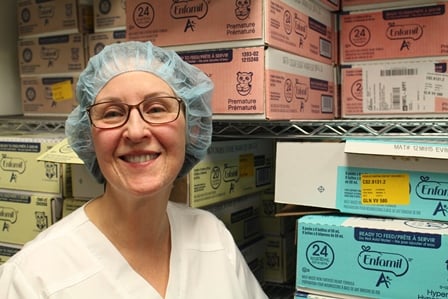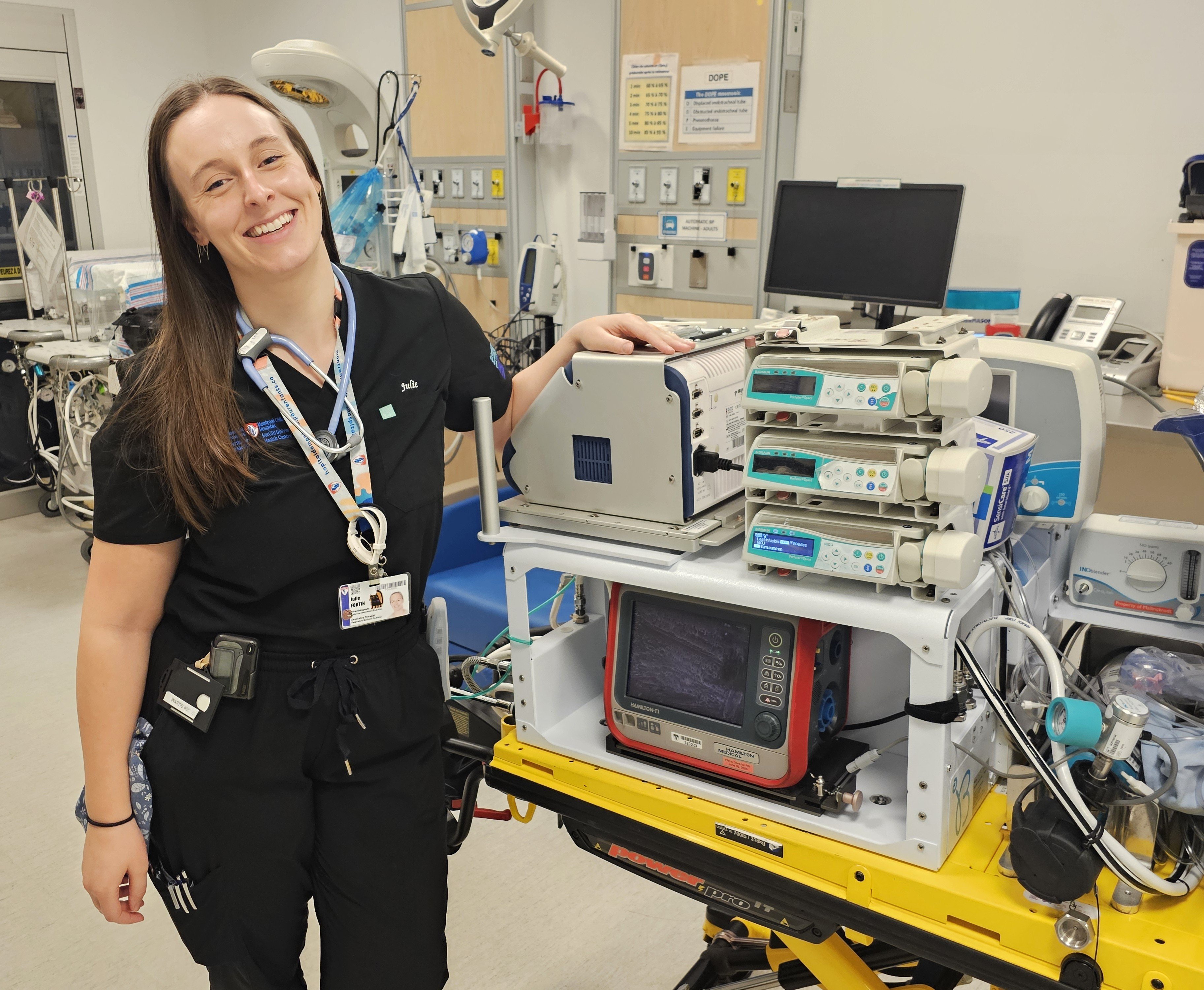

A day in the life of a…food service attendant
28 November 2018
Denise Bourgon is hard to keep up with. She walks fast, works fast and thinks fast. “I’m always thinking about what I need to do next,” she says. Denise has been working in Food Services at the McGill University Health Centre for the past 24 years. She started off at the Montreal Chest Institute and was transferred to the Montreal Children’s Hospital in 2008 where she began working in the formula room.
Every detail counts
The formula room is not easy to find. It’s tucked away inside the kitchen on S2. Small and tidy, the space has everything Denise needs to make specialized liquid formulas for newborn patients at the MCH, or for older pediatric patients with restrictive dietary needs. Denise starts off every morning reviewing her long list of daily orders. Each formula is tailored to the child’s nutritional needs and is accompanied by a recipe prescribed by an MCH nutritionist.
“I make enough formula to last 24 hours, and on average, we prepare 15 to 25 special formulas a day,” she says. “It takes a lot of concentration and attention to get every detail just right. I always tell my colleagues that we don’t have the right to make a mistake because we’re dealing with children and their health.”
Each specialized formula varies in complexity; some are liquid concentrate infant formulas diluted in sterile water, while others are in powdered form or ready-to-feed. “Some of the formulas I make are a combination of nine ingredients. Each recipe must be followed precisely in order to have the exact right amount of nutrients for every patient,” she says. “And for mothers who are breastfeeding, I prepare special concentrates they can mix in their breast milk.” Denise also prepares milkshakes or calorie-rich shake mixes, called Scandishakes, for children who need to gain or maintain their weight.
Taking the extra step
After lunch, Denise delivers and distributes the prepared formulas to each ward, with most of her clientele making up the neonatal intensive care unit. “I deliver my stock to the milk room on each floor,” she says. “Even though I don’t have any interaction with the patients, I feel like I know them because I’ve been preparing their formulas for weeks or months, and sometimes even years.”
When dropping off the new stock, Denise also takes the time to observe whether or not yesterday’s orders were fully consumed. “We want to make sure that we’re making the right amount of formula for each patient. If I notice that a patient’s formula hasn’t been touched or that every last drop has been drunk, I follow up with a nutrition technician to see if we should be decreasing or increasing the amount I make,” she says. “I work very closely with that team. They answer my questions and keep me up-to date on certain situations. We sometimes call each other 20 times a day!”
Using good judgment
Considering the number of new admissions a day, Denise is constantly reprioritizing and juggling her responsibilities. “I get called with a lot of different emergencies, so I’ve developed good judgment over the years in terms of what I should tackle first,” says Denise. Besides preparation and delivery, she is also responsible for reviewing the formula room’s inventory list, checking expiry dates and restocking pre-op, the emergency department and the recovery room with ready-to-feed formulas.
“I find my job very fulfilling because I get to participate in a child’s recovery,” she says. “We all play a part in helping these patients get better. Doctors and nurses use their brains to help these children, and I use my arms.”









